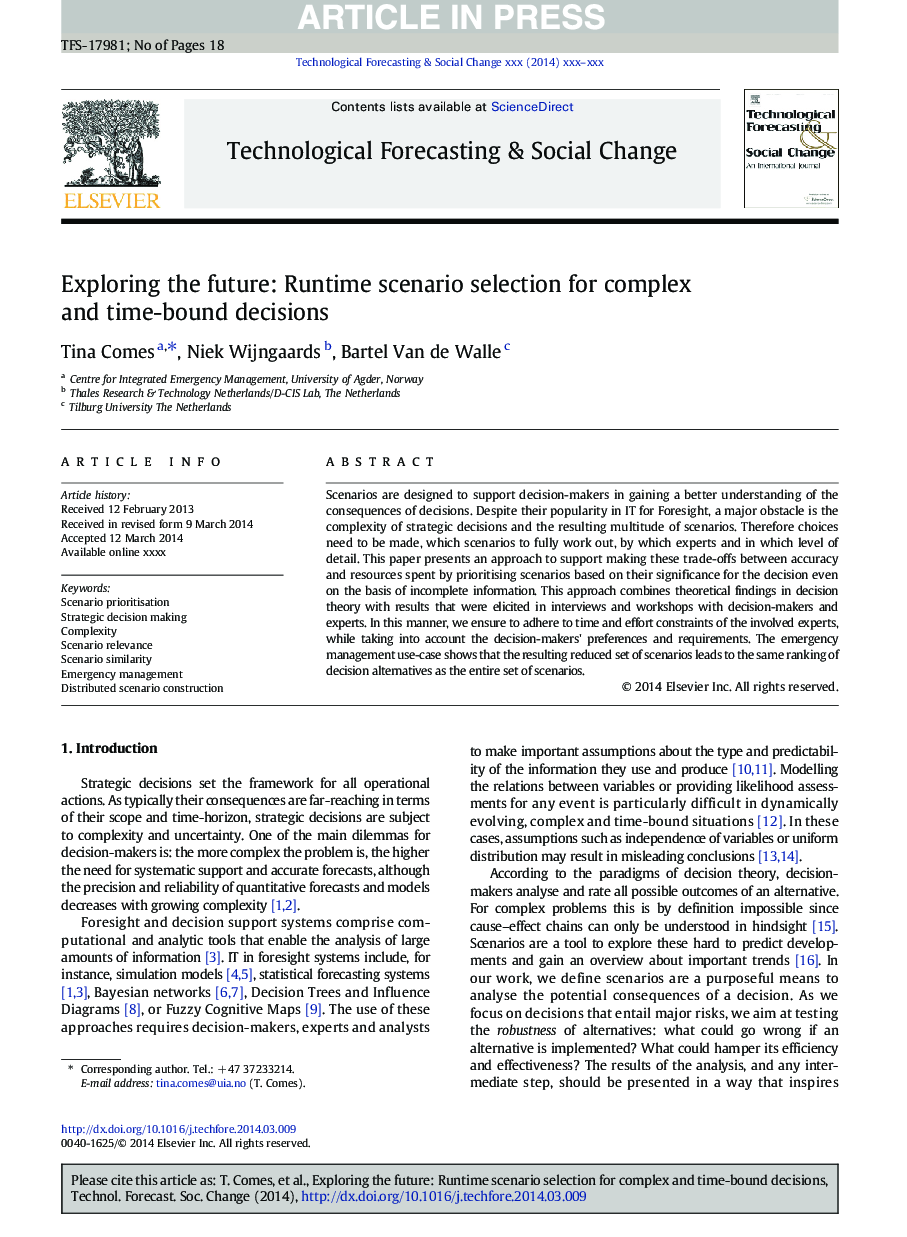| Article ID | Journal | Published Year | Pages | File Type |
|---|---|---|---|---|
| 7256541 | Technological Forecasting and Social Change | 2015 | 18 Pages |
Abstract
Scenarios are designed to support decision-makers in gaining a better understanding of the consequences of decisions. Despite their popularity in IT for Foresight, a major obstacle is the complexity of strategic decisions and the resulting multitude of scenarios. Therefore choices need to be made, which scenarios to fully work out, by which experts and in which level of detail. This paper presents an approach to support making these trade-offs between accuracy and resources spent by prioritising scenarios based on their significance for the decision even on the basis of incomplete information. This approach combines theoretical findings in decision theory with results that were elicited in interviews and workshops with decision-makers and experts. In this manner, we ensure to adhere to time and effort constraints of the involved experts, while taking into account the decision-makers' preferences and requirements. The emergency management use-case shows that the resulting reduced set of scenarios leads to the same ranking of decision alternatives as the entire set of scenarios.
Related Topics
Social Sciences and Humanities
Business, Management and Accounting
Business and International Management
Authors
Tina Comes, Niek Wijngaards, Bartel Van de Walle,
